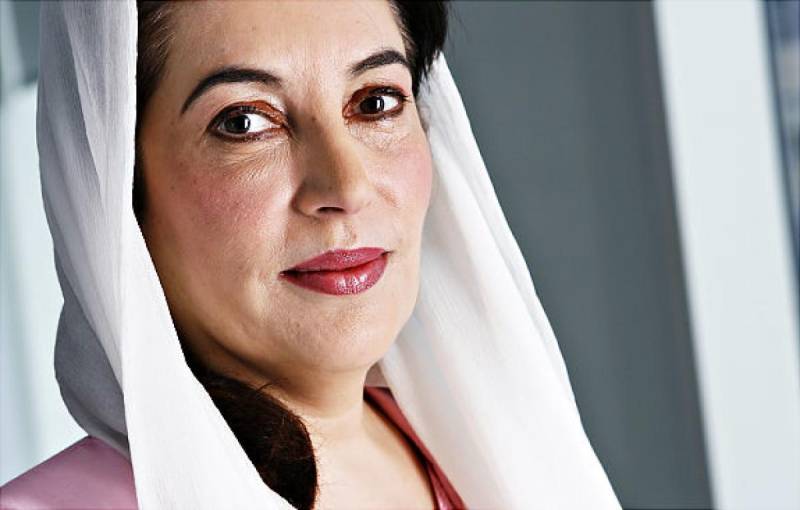It is a tragedy, a horror, a crime against humanity. The details of the murders of women: burned to death, stoned, stabbed, beaten to death, beheaded, hung, having their throats slit, shot, strangled, and buried alive for "honour".
A joint session of the Parliament recently approved the anti-honour killing and anti-rape bills, unanimously, which was moved by PPP’s Senator Farhatullah Babar. The bill was first tabled in the Senate by PPP’s former Senator Sughra Imam in February 2014. The bill proposed certain amendments in the Pakistan Penal Code 1860, Qanoon-e-Shahadat Order 1984, and the Code of Criminal Procedure 1898 that the Senator claimed would make sure that crimes pertaining to rape and honour killing are reported and the culprits are brought within the ambit of the law. She insisted that the bill does not aim to protect only women but also men against such monstrous crimes.
Ms Sughra Imam’s commented on the necessity of the amendments by saying: “No law will eradicate a crime entirely but the law should be a deterrent. Laws are supposed to guide better behaviour, not allow destructive behaviour to continue with impunity.”
The new legislation entails that killers mandatorily get a life sentence. Before the reform, the option for killers to be pardoned by the victim's family existed, in order to spare them a jail term. Now, should the victim’s family pardon the killer, the killer would be spared the death sentence, at best, but not a jail term.
On the occasion, Prime Minister Nawaz Sharif congratulated the parliament, civil society activists, the academia, and the media for supporting the passage of the anti-honour killing legislation.
"I urge the entire nation particularly enlightened and progressive voices in the country to support us in successful enforcement of the legislation and catch hold of those who have been targeting women through frivolous customs and practices that have nothing to do with Islam," The Prime Minister asserted and added:
”There is no honour in honour killing.”
There have been plenty of cases of honour killing that came to the forefront in Pakistan.
Fakhra Khar‘s husband poured acid on her face, after she left him and returned to her mother's home in Karachi. Mukhtaran Bibi was gang-raped by four men in Punjab in 2002. Tasleem Solangi a village girl, 17, was falsely accused of immorality and had dogs set on her as a punishment before she was shot dead by in-laws. Ayesha Baloch was accused of having sexual relations with another man before she married, her husband slit her lip and nostril with a knife.
Recently, certain high-profile deaths have managed to bring the subject to the attention of the government, it seems. The deaths included that of British woman Samia Shahid in July, this year, who was allegedly murdered by her former husband together with her father. The second high profile case was that of Pakistani model and social media celebrity Qandeel Baloch, who was strangled to death, with the perpetrator believed to be her brother.
But to me, and it’s my very personal opinion, the most high profile murder in the name of the honour was the murder of the twice-elected Prime Minister of Pakistan, Benazir Bhutto, who confessed in an interview:
“I can deal with political differences but how do you deal with it when someone says that they don’t like you just because you are a woman and have taken a man’s place. I found out that my opponents reduced themselves to verbal abuse rather than discussing issues. My identity comes ultimately from being a woman and I felt that my life has to make a difference in lives of other women. I was brought up to believe that a woman can do everything a man can”.
When Benazir Bhutto returned to Pakistan on 18 October 2007 – after spending eight years in self-imposed exile – two huge explosions attacked her massive welcome rally. Just two months later, she was assassinated: after a political rally that took place in Liaquat Bagh, Rawalpindi, on 27 December, 2007, shots were fired at her and a suicide bomb was detonated immediately afterwards. BB – as she is affectionately known – died of a bullet wound.
Militants associated with Al-Qaeda claimed responsibility of the attacks. Commander Mustafa Abu al Yazid, specifically, is believed to have claimed the responsibility for the assassination. In his statement to the media, al-Yazid stated that al-Qaeda’s second-in-command, Ayman al-Zawahiri, ordered the killing in October 2007.
Whether it was the establishment or Islamist terrorists who murdered Benazir Bhutto, their interest was common: to remove a strong, moderate, and liberal Muslim woman from the political scene. Unfortunately, they managed to assassinate Mohtarma, but couldn’t kill her legacy. Pakistan is holding on to democracy and has successfully managed to approve the anti-rape and anti-honour killing bills.
I would like to congratulate the Parliament and all those who have contributed to make this possible. To quote Mohtarma Benazir Bhutto:
“We gather together to celebrate freedom, to celebrate democracy, to celebrate the three most beautiful words in English Language, ‘We, The People’.”
Long live democracy, long live Pakistan.






